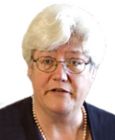Child Development
Why Prefer Mystery to Knowledge?
Resistance to scientific ideas may have universal roots in childhood
Posted June 10, 2012
Two archaeological stories, both carried by Britain's The Daily Mail (if not, in general, by less sensationalistic mainstream media), trade on imagery that associates archaeology with the discovery of lost civilizations, even though archaeology in the 21st century has long shed any residues of a treasure-hunting identity.

The first of these stories repeats claims from recent press releases for the discovery of "Ciudad Blanca", inaccurately said to have been sought in the jungles of eastern Honduras by no less than Hernan Cortes himself.
Today, the Daily Mail adds a story on the identification of a site in Georgia as the purported place where the Classic Maya relocated after they "disappeared" from Central America.
So, it seems to be the 19th century over at the Daily Mail-- archaeology as the discovery of unknown civilizations.
Of course the impression conveyed by these stories is not true.
But that seems not to bother the newspaper itself-- nor many of the readers of these and similar stories. They seem to prefer mystery and discovery to knowledge.
This is part of an observed tendency for people to "resist acquiring scientific information that clashes with common-sense intuitions about the physical and psychological domains", patterns of thought established in childhood and maintained in adulthood by many people.
In comments on the Daily Mail story about Honduras, Clare from Huntingdon writes
Please keep us posted on this story DM, this is exciting, I was captivated by stories of El Dorado as a child!
Commenting on skepticism of the Maya in Georgia on the part of archaeologists, Dan from Leeds said
The theory that Mayans lived in Georgia may well be "bunk", but until totally disproved, there is no great reason why it could not be true.
Which made me wonder: is there some explanation for this apparent preference for mystery over logic?
Clare reacts from emotions recalled from childhood; Dan tries to use the language of science in resisting scientific critics. These seem to represent two different strands of reaction that promote the traditional tropes of mystery and discovery that continue, despite criticism, to dominate news reports about archaeology.
There actually are reasons why the Georgia Maya theory can be rejected now, even though it is not "totally disproved". Dan's model of how science proceeds is bad; it seems to be based on the idea that every explanation must be entertained until some definitive proof is found.
But archaeological arguments don't work that way (nor, I think, do any scientific arguments). We routinely weigh different explanations seeking the best fit for the known facts.
One of the criteria we use to weigh different explanations is parsimony-- a preference for explanations that require the smallest number of assumptions. The Maya-in-Georgia claim is not parsimonious. The indigenous people of the southeast US built their own pyramids and other earthworks, so the terraces mapped, if produced by human agency, could more easily be products of local people than of Maya from Central America.
That, of course, means that the site is not as exciting: we are back to that childhold preference for exciting discoveries expressed by Clare.
Stories of actual fieldwork with its slow pace, and careful construction of knowledge, are not as exciting as stories of discovery and mystery.
Coverage of the new Honduran LiDAR study includes a comment by one of the engineers of his own reaction (uninformed by any knowledge of the existing studies of Honduran archaeology) that reflects the same thing:
I'm the only person right now on the planet that knows that there's these ruins.
Discovery feels exciting-- like that childhood moment Clare recalled in reading about it. Never mind that the actual story is more complicated.
Archaeologists actually have surveyed for sites in the area, so it is even possible that some of these sites are already documented
A better version of the Ciudad Blanca story was actually published, written by Dina Spector. It makes the point that site discovery is a starting point: for us to have knowledge about these sites, we need on the ground archaeology that will tell us when they were occupied, by who, and for what purposes.
But as comments on my own discussion of the Ciudad Blanca reporting illustrate, there are still going to be people who want to hold on to the story of mystery and discovery.
So I am back to my initial question: why?
In 2007, Paul Bloom and Deena Skolnick Weisberg published an article in Science called "Childhood Origins of Adult Resistance to Science". They start by summarizing some of the research showing what they call "resistance to science":
In a 2005 Pew Trust poll, 42% of respondents said that they believed that humans and other animals have existed in their present form since the beginning of time, a view that denies the very existence of evolution. Even among the minority who claim to accept natural selection, most misunderstand it, seeing evolution as a mysterious process causing animals to have offspring that are better adapted to their environments. This is not the only domain where people reject science: Many believe in the efficacy of unproven medical interventions; the mystical nature of out-of-body experiences; the existence of supernatural entities such as ghosts and fairies; and the legitimacy of astrology, ESP, and divination.
Why? the authors examine children's existing knowledge, and the ways they learn. They write
babies are not “blank slates”; even 1-year-olds possess a rich understanding of both the physical world (a “naïve physics”) and the social world (a “naïve psychology”)...children naturally see the world in terms of design and purpose.
Perhaps this "intuitive psychology" can help us understand why some readers of archaeological discovery stories prefer the mysterious novelty to the more complicated picture presented by research in progress. Ruins exist for a purpose: to be discovered. After that, they no longer are interesting. Arguing that such sites are actually not surprising may seem "unnatural and unintuitive".
There is a second piece to the argument, though, that (unfortunately) I think probably makes a stronger contribution to the eagerness with which readers accept claims of archaeological mystery and discovery, and resist experts who attempt to correct misinformation.
The authors of Childhood Origins of Adult Resistance to Science write that in any society, some information
is not associated with any particular source; it is “common knowledge.” As such, learning of this type of information generally bypasses critical analysis....Their existence is generally assumed in day-to-day conversation and is not marked as uncertain...Other information, however, is explicitly asserted, not tacitly assumed....the tentative status of this information is sometimes explicitly marked; people will assert that they “believe in evolution.”
When faced with this kind of asserted information, one can occasionally evaluate its truth directly. But in some domains, including much of science, direct evaluation is difficult or impossible....So rather than evaluating the asserted claim itself, we instead evaluate the claim's source. If the source is deemed trustworthy, people will believe the claim, often without really understanding it.
This, unfortunately, sounds a lot more like the situation that exists. Facts don't matter, because people in general cannot understand the facts. The LiDAR study in Honduras is not exciting because people understand the technology and what it can (and cannot) do. It fits a certain kind of common sense-- the idea that ruins are out there awaiting discovery because of (often mysterious) disappearance of people who built these places.
When that kind of explanation is contested, readers relying on these modes of thought "evaluate the claim's source".
And that would imply that the kinds of people who claim there are mysterious abandoned cities out there are more trustworthy to at least some of the public than those of us who insist on more modest and measured reports, in which there is no mystery to explain in Georgia or the Mosquitia.
Which would be a very low note to end on. Luckily, there is more. Following up on the central observation that openness to science stems from childhood learning capacities, just last year Frank Kell published another article in Science. This one, "Science Starts Early", provides more hope.
Kell writes that
young children are often quite adept at uncovering statistical and causal patterns and that many foundations of scientific thought are built impressively early in our lives. This growing understanding of how children acquire many of the thinking skills used in science has implications not only for education but also for understanding how all of us make scientific progress in the face of ignorance and incomplete knowledge.
From the perspective of cognition, Kell writes, scientists are intriguing: they
routinely, and with seeming ease, call upon a diverse set of cognitive skills to do their jobs. They detect correlations, often between seemingly unrelated phenomena. They infer causation from these correlations. If all goes well, they uncover the mechanisms that explain it all—and then share their knowledge and build upon it by acquiring knowledge from others.
Most exciting, even infants can exercise basic operations of selecting between different explanations based on plausibility "to rule out or narrow an overwhelming range of possible correlations".
Kell is optimistic that good education could build on the already-existing cognitive capacities of infants:
Rather than bumbling babies, they are individuals who—right from the start—are deeply interested in and can learn surprisingly fast about the patterns of nature.
What we need to do to help, he writes, is think about how we can
prevent the essentialist biases and other narrowing strategies that children use to understand the world from lingering into adulthood and impairing scientific reasoning.
"Narrowing strategies" lead to greater comfort with known explanations that have served well enough. Countering them in adults is our challenge. Clearly it is possible-- or none of us would be scientists.
The trick, then, is to figure out why I don't find mysterious discovery stories particularly satisfying, and see if there is some way to convey the real excitement of pinning down the details of life in the past to others. That is something I think we have a chance with, even if the Daily Mail and its ilk are not likely to be allies along the way.




